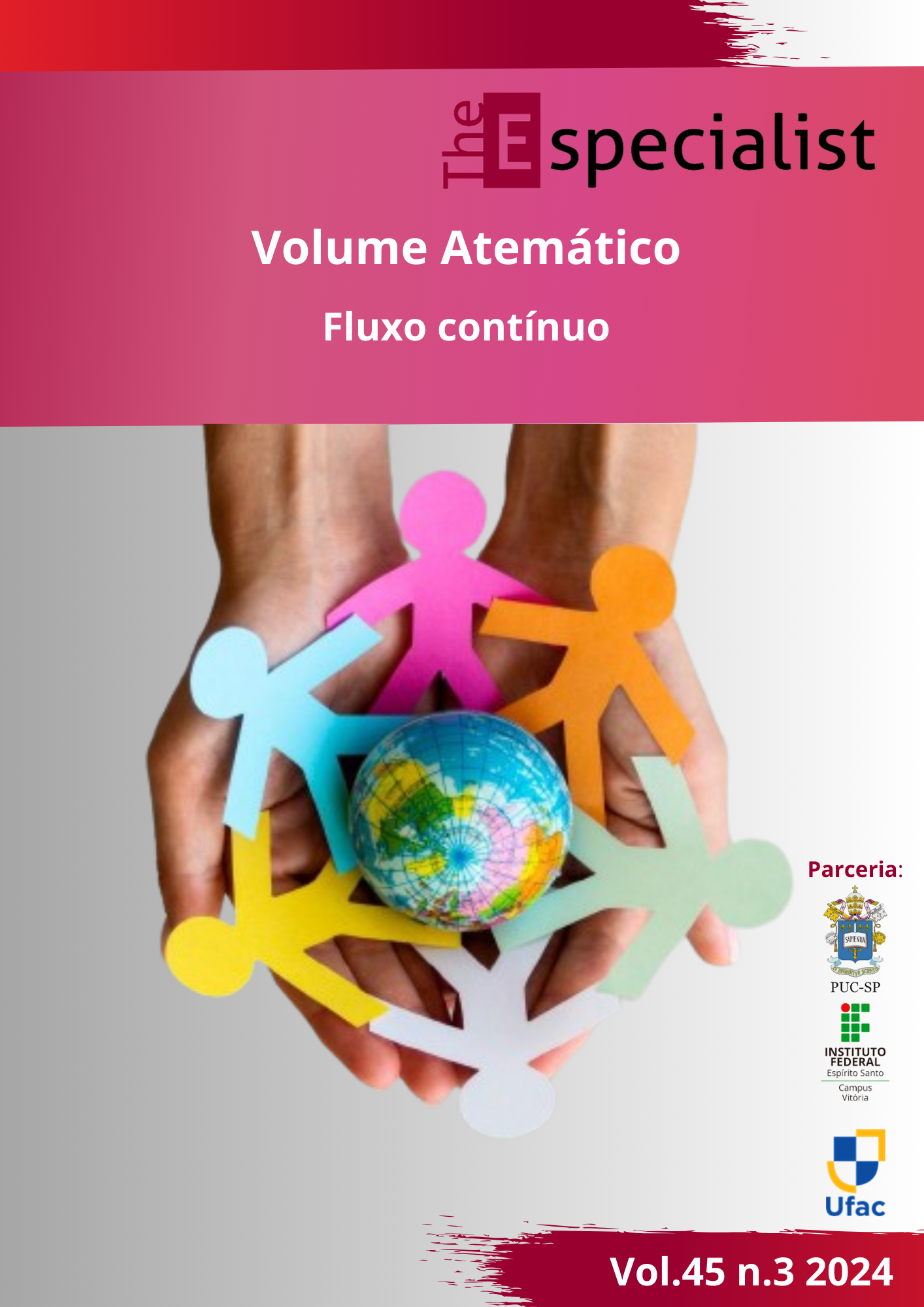Approach to the production of serious games and adapted elements for teaching science and biology to deaf students
DOI:
https://doi.org/10.23925/2318-7115.2024v45i3e62985Keywords:
Special Education, Teaching Strategies, Accessibility in teaching, Continuing educationAbstract
Teaching Science and Biology to deaf students requires overcoming challenges to ensure equitable access to scientific knowledge. Therefore, the creation of accessible teaching materials, combined with stimulation, critical thinking and active participation is essential for teaching to be enriching. The main objective of this review was to discuss the effectiveness of serious games, present in the adapted materials, in promoting the learning of Science and Biology by deaf students. The review brings a compilation of research aimed at practical and transformative instructions in the inclusive educational area, with a view to teaching Science and Biology.
References
BEDWELL, W. L.; PAVLAS, D.; HEYNE, K.; LAZZARA, H. E.; SALAS, E. Toward a Taxonomy Linking Game Attributes to Learning: An Empirical Study. Simulation & Gaming An Interdisciplinary Journal, 2012.
BERS, M. U.; FLANNEY, L.; KAZAKOFF, E. R; SULLIVAN, A. Computational thinking and tinkering: Exploration of an early childhood robotics curriculum. Computers & Education, 2014. 72.145-157.
CARMO, A. A. Deficiência física: a sociedade brasileira cria, recupera e discrimina: Brasília, DF: MEC, Secretaria dos Desportos/PR, 1991.
CARVALHO, R. E. Educação Inclusiva: com os pingos nos “is”. 2. ed. Porto Alegre: Mediação, 2007.
COELHO, V. M. O jogo como prática pedagógica na escola inclusiva. 2010. 26 p.
CORDEIRO, Jéssica Lima, SILVA, Maysa Sousa. O ensino de ciências e biologia na educação dos surdos: desafios e perspectivas para uma melhor educação inclusiva. Revista Científica Multidisciplinar Núcleo do Conhecimento. Ano 03, Ed. 08, Vol. 14, pp. 86-100, Agosto de 2018. ISSN:2448-0959
COTONHOTO, Larissy Alves; ROSSETTI, Claudia Broetto; MISSAWA, Daniela Dadalto Ambrozine. Importância Do Jogo E Da Brincadeira Na Prática Pedagógica, 2019 . Disponível em : <http://pepsic.bvsalud.org/pdf/cp/v27n28/05.pdf>. Acesso em: 29 jun. 2023.
DETERDING, S.; DIXON, D. Gamification: Using game design elements in non-gaming contexts. In Extended Abstracts on Human Factors in Computing Systems Chigago, 2011.
DICHEVA, et al, G. Gamification in Education: A Systematic Mapping Study. Educational Technology & Society, 2015. 18(3). 75–88
DIZEU, Liliane Correia Toscano De Brito; CAPORALI, Sueli Aparecida. A língua de sinais constituindo o surdo como sujeito. Disponível em: <https://www.scielo.br/j/es/a/LScdWL65Vmp8xsdkJ9rNyNk/?format=pdf&lang=pt>. Acesso em: 28 jul. 2023.
GREDLER, M. E. Educational games and simulation: A technology in search of a research paradigm. Handbook of research for educational communications and technology, 1996. (pp. 521-540).
KISHIMOTO, Tizuko M. O Jogo e a Educação Infantil. São Paulo: Pioneira, 1994.
MALONE, T. W. Towards a theory of intrinsically motivation instruction. Cognitive Science, 1981, 4. 333-369. MALONE, T. W.; LEPPER, M. R. Making learning fun: A taxonomy of intrinsic motivations for learning. In: Aptitude, learning and instruction: Cognitive and affective process and analyses, 1987, v. 3. (pp. 223-253).
ROCHA; Rafaela. Vilela; BITTENCOURT. Ig Ibert; ISOTANI, Seiji. Análise, Projeto, Desenvolvimento e Avaliação de Jogos Sérios e Afins: uma revisão de desafios e oportunidades. Conferência: Simpósio Brasileiro de Informática na Educação. 2015. DOI:10.5753/cbie.sbie.2015.692. Disponível em: <https://www.researchgate.net/publication/280301908_Analise_Projeto_Desenvolvimento_e_Avaliacao_de_Jogos_Serios_e_Afins_uma_revisao_de_desafios_e_oportunidades>. Acesso em 25 jul. 2023.
ROCHA, Rafaela. Vilela. Metodologia iterativa e modelos integradores para desenvolvimento de jogos sérios de treinamento e avaliação de desempenho humano. Tese (Doutorado em Ciência da Computação) – Departamento de Computação, Universidade de São Carlos, São Carlos, SP. 2014
SOUSA, M. R. et al. Games for learning: bridging game-related education methods to software engineering knowledge areas. In: proceedings of the 39th International Conference on Software Engineering (ICSE), 2017. 170-179.
THIAGARAJAN, S. Team activities for learning and performance. Handbook of human performance technology, 1999. (pp. 518-544).
UZUNBOYLU, H.; KINIK, E.; KANBUL, S. An analysis of countries which have integrated coding into their curricula and the content analysis of academic studies on coding training in Turkey. TEM Journal, 2017. 6. 783-791. 10.18421/TEM64-18.
WERBACH, K. and Hunter, D., 2012. For the win: How game thinking can revolutionize your business, Wharton Digital Press.
ZYDA, M. From Visual Simulation to Virtual Reality to Games. Comput. IEEE Computer. Society., pp. 25–32, 2005.
Downloads
Published
How to Cite
Issue
Section
License
Copyright (c) 2024 The ESPecialist

This work is licensed under a Creative Commons Attribution 4.0 International License.
The authors grant the journal all copyrights relating to the published works. The concepts issued in signed articles are the absolute and exclusive responsibility of their authors.


 Esta obra está licenciada com uma Licença
Esta obra está licenciada com uma Licença 